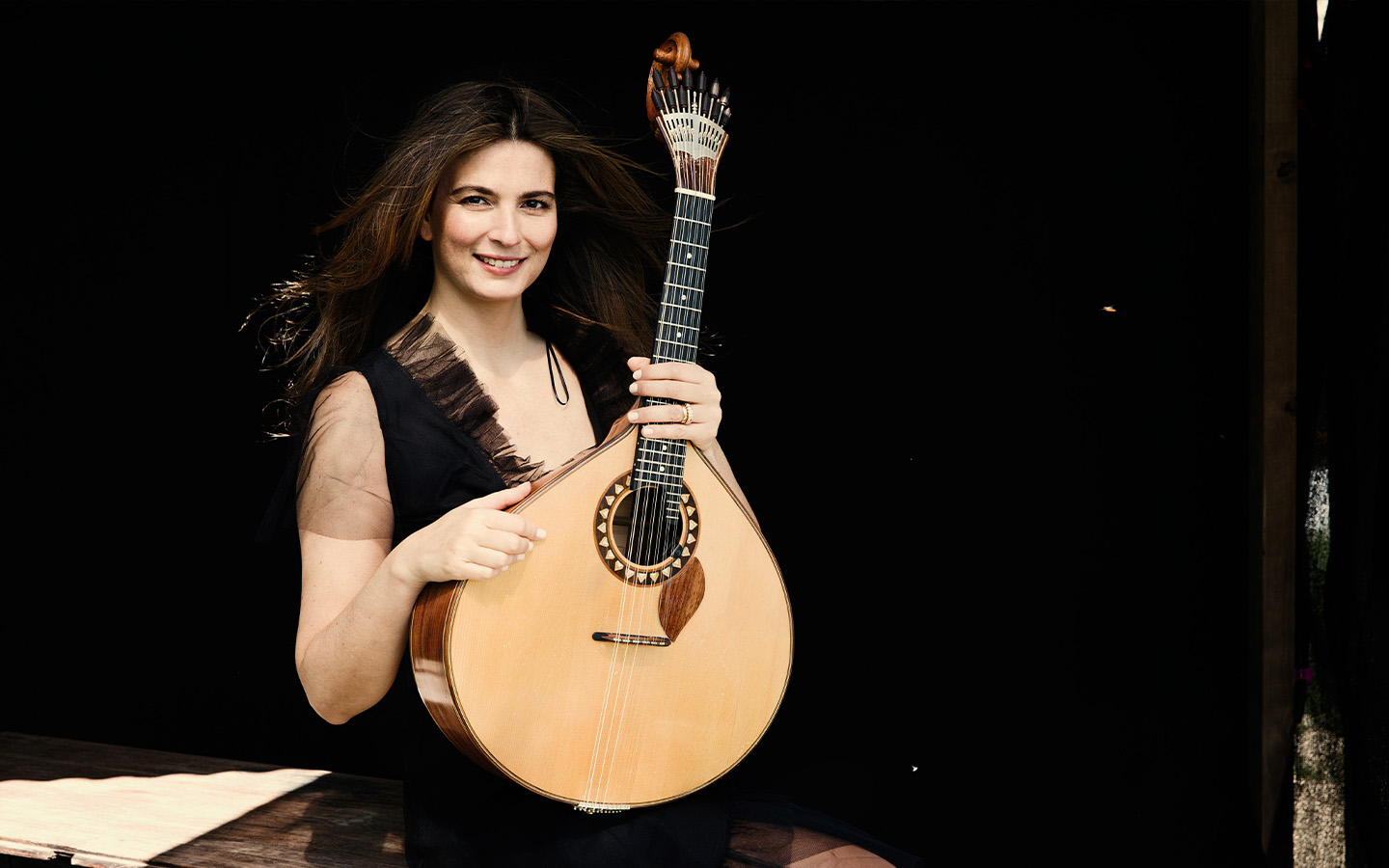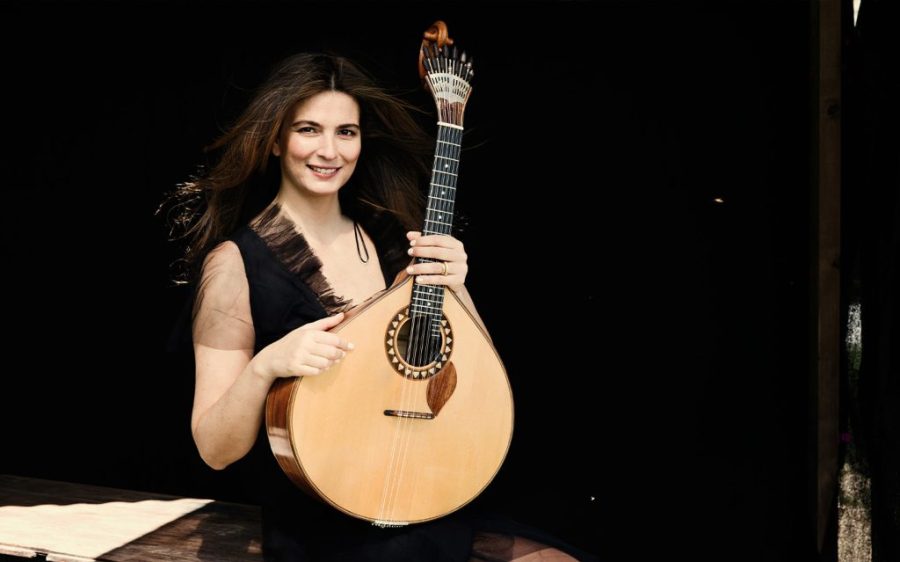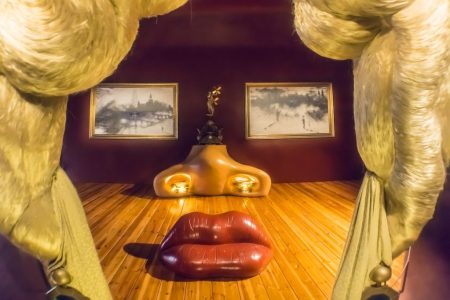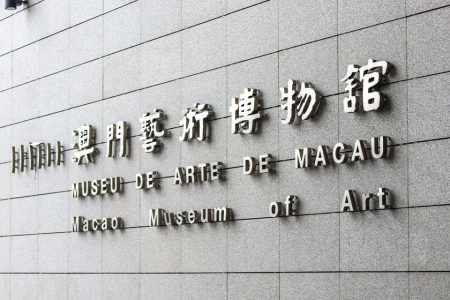When you think of Portugal’s national musical form, fado, you might picture a singer – often a woman in a long, black dress – in a cosy casa de fado in Lisbon. She will be accompanied by the sound of the distinctive, pear-shaped Portuguese guitar, and the person playing it will invariably be male. This is how it has always been, literally for centuries.
But then, just over 10 years ago, Marta Pereira da Costa came into the scene. She had learned how to play the piano and had a solid classical guitar background, when she fell in love with the Portuguese guitar at the age of 18. She became determined to master the instrument – one of a handful of women to do so – and rose to the top of a male-dominated scene, winning the 2014 Prémio Instrumentalista from the Amália Rodrigues Foundation, set up by the famed fadista whose name it bears.
Two years later, she collaborated with renowned Portuguese singers such as Camané and Rui Veloso on her debut album. Her career has been a whirlwind of touring and recording ever since.
[See more: ‘I didn’t choose fado. Fado chose me.’ Six questions for fado singer Gisela João]
Pereira da Costa’s Macao concert comes at a time when fado appears to be making a global comeback, fueled by new artists like Carminho and Ana Moura, who have won the attention of younger fans with their eclectic style. The inclusion of Carminho’s song Quarto in the movie Poor Things (for which Emma Stone won the Oscar for Best Actress) has added to the momentum. Pereira da Costa’s own Tiny Desk Concert for NPR has garnered 675,000 views since it was posted to YouTube three months ago.
Locally, Macao has recently seen fado concerts by the likes of Gisela João and Camané. There’s also an ongoing series of fado nights at Dom Pedro V Theatre, which some cultural officials hope could become a long-term fixture among the city’s cultural offerings.
Pereira da Costa played at Hong Kong’s Club Lusitano on Wednesday and will perform at the closing concert of the Macau Literary Festival on Saturday at Dom Pedro Theatre V. Macao News spoke to her about fado, her career and connection to Macao.
Tell us about your connection to Macao.
I have a family connection. My mother was born in Macao, and my grandfather was born in Shanghai, working in Macao for a great part of his life. I’ve never been to Macao and I am very excited about visiting. I have cousins in Macao whom I’ve never met, others that I’ve only met once or twice before. With this visit, I am connecting to my family and my roots. To bring the Portuguese guitar, and bit of Portugal to Macao, is also very special.
When did the Portuguese guitar come into your life?
I started playing when I was 18. My father, who has a deep passion for fado and the Portuguese guitar, knowing of my love of music and all instruments, told me “I would love you to learn how to play the Portuguese guitar.”
I agreed and my father introduced me to Carlos Gonçalves, who had played with [fado icon] Amália Rodrigues. He gave me my first class and I fell in love with the instrument. My father was elated and began taking me to fado houses in Lisbon. Suddenly, I had this urge to very quickly learn everything about fado and connect with the people involved in it.
[See more: Fado nights are coming and could become a permanent drawcard for the city]
Fado is known for its melancholic nature. But your music is different.
Fado is not just about saudade [a feeling of longing for someone or something that cannot be fulfilled] or feeling blue. Fado tells the stories of the daily lives of the Portuguese people and expresses our emotions, whether happy or melancholic. It’s very diverse – we have all sorts of feelings expressed in fado.
My first compositions did have a very sad tone, but I’ve tried to fight against that and show that fado can also be lively.
You seem to be adding different styles, too, taken from jazz and world music.
My music relates to the music that I’ve learned and listened to. I have a classical guitar background. I express myself through various genres, which ties back in with my idea of introducing fado to the world and bringing the world into fado music. We’re building bridges, creating a connection with different cultures.
During the Age of Discovery, fado travelled around the world with Portuguese sailors, who carried the Portuguese guitar everywhere they went. After spending time in Brazil, their music would have acquired Brazilian influences. The same applies to their journeys into the African continent. Fado is a genre rich in cultural influences.
Why do you think there are so few female players of the Portuguese guitar?
Historically, we witnessed men playing the Portuguese guitar while women sang. There were fewer men singing fado as well. This is how things were before, but they can be different, as we’re now proving.
There’s now a woman playing in a fado house and there is another woman in the Algarve who holds a bachelor’s degree in Portuguese guitar and gives lessons. We’re all connected and it’s beautiful to see how we, as women, bring a new approach to Portuguese guitar. We have different ways of expressing our emotions. It’s a new chapter in the history of Portuguese guitar.
[See more: These were the best selling musical artists of 2023]
How has the fado community reacted?
At the beginning [of my fado career] I felt warmly welcomed. Being a female Portuguese guitar player, I was doing something new and I was very eager to learn more. Male fado guitarists enjoyed sharing their knowledge with me.
When I started holding concerts more often, however, some of them were envious. Some would say things like “She has all those concerts because she’s a woman and shows her legs.” Not pleasant to hear. But that gave me strength to make my point and stand on my own. I put everything I’ve got into each concert or project I get involved in. I know I have a lot to prove and I want to do so.
What will you perform in Macao?
I am going to present a traditional repertoire, including Verdes Anos by Carlos Paredes, and Fado Lopes, as well as performing my own compositions from my upcoming album Sem Palavras [“Speechless” in English], which is coming out in May. I hope that people will love the experience and leave the concert wanting to listen to more of my music.
What are you most looking forward to doing or seeing in Macao?
My cousins have offered to show me around town, and I am looking forward to that. I want to get a sense of the local life, and try the food. Though this is my first time in Macao, I am already familiar with a few Macanese dishes. My cousin Toneco (António M. Jorge da Silva) wrote a book on the cuisine and will soon launch a new one. I may try and track down my mother’s former school too.
[See more: When souls connect: How handpans became a thing in Macao]
What next after Macao?
I’m going to San Francisco and I’ll also be playing at the Savannah Music Festival, followed by a concert in New York.
I will debut my new album, which has been recorded with the famous Cuban pianist and producer Iván Melon Lewis, at Casa da Música [in Porto, Portugal] on 11 May. I am bringing Iván to Portugal for the concert. The new album will be available on Spotify from the 10th of May.
Another project I am excited to work on involves bringing fado to historical cities in Brazil, like Petrópolis or Ouro Preto. I’ll be partnering up with Samara Líbano, who plays the seven-string guitar, to build a concert of fado and Brazilian chorinho. It’s a really cool project.
How does it feel to introduce fado to audiences around the world?
I am beyond proud. It’s great to have the opportunity to tell people about our culture and music. It’s also a great responsibility. I love being on stage but also interacting with people after the concerts. To answer their questions and hear their feedback is a real treat.
Do you think there’s been a renewed interest in fado?
Definitely. Thanks to tourism, Portugal is now very trendy. Fado is getting increasingly well known [overseas] due to the people who visit the country and it’s only fitting, because it is one of our national symbols. I also think it’s one of our most marketable assets abroad. Opportunities to perform all over the world have been growing.






